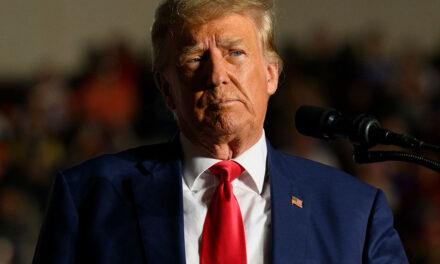A presumption is an idea taken to be true. It is a word we use as the basis for other ideas but we’re not certain. So, we “presume.” It’s also a word we don’t actually believe which justifies our unsureness. Sometimes we use it boldly, brazenly, and audaciously.
An assumption is a thing we accept as true or as certain to happen, without proof. It is useful to defend the action of taking power over something, like subservient.
IMMUNITY
Immunity is the state of quality of being resistant to a particular infectious disease or pathogen. It can be used to protect or exempt someone from something, like a duty or a penalty. One common example is “The rebels were given immunity from prosecution.”
Legal immunity is a status wherein an individual cannot be held liable for a violation of the law. The legal reason for that is said to facilitate ‘societal aims’ that outweigh the value of imposing liability in the case at hand. While rare in legal discourse and legal interpretation, we see it in cases of parliamentary immunity and witness immunity. It’s the obverse of legal power.[1]
No one knows how often supreme courts anywhere on the planet have “presumed” someone to be “immune” from legal obligation and shielded them from accountability for lawlessness. When a court immunizes someone from legal consequence, it’s fair to say it’s as rare as ex-parte (one-sided), ab inito (from the beginning), prima facie (at first face), and res ipsa loquitur (the thing speaks for itself).
SCOTUS used presumption to immunize a man from any accountability for the second most violent attack on our nation’s capital in history.
“The majority holds that Trump is presumptively immune from prosecution for any discussions he had with Pence about the official conduct of either the president or the vice president. Therefore, discussions Trump had with Pence related to Pence’s counting of the electoral votes receive presumptive immunity—as counting the electoral votes is the vice president’s constitutional duty under Article II, Section I, of the Constitution. A court evaluating whether Trump should receive immunity for those discussions must conduct the fact-specific analysis to determine whether opening the door to prosecution under these circumstances would pose “dangers of intrusion on the authority and functions of the Executive Branch.”[2]
The minority in Donald J. Trump v. United States of America presumed nothing. The name says a great deal about where we are as a nation today—a former president is suing his county demanding immunization from prosecution for what he did to it.
The main dissent, penned by Justice Sonia Sotomayor and joined by Justices Elena Kagan and Ketanji Brown Jackson, condemns the majority’s immunity allowances calling them “disastrous” for democracy. Justice Sotomayor said the majority’s decision, in its insulation of presidents to escape criminal accountability “reshapes the institution of the Presidency.” The majority “invents immunity through brute force,” she writes. According to Sotomayor’s dissent, the majority opinion has no meaningful textual or precedential support.[3]
The Federal Rules of Evidence include a rule that defines presumptions in civil cases. Rule 301 says, “In a civil case, unless a federal statute or these rules provide otherwise, the party against whom a presumption is directed has the burden of producing evidence to rebut the presumption. But this rule does not shift the burden of persuasion, which remains on the party who had it originally.”[4]
“Presumptions governed by this rule are given the effect of placing upon the opposing party the burden of establishing the nonexistence of the presumed fact, once the party invoking the presumption establishes the basic facts giving rise to it. The same considerations of fairness, policy, and probability which dictate the allocation of the burden of the various elements of a case as between the prima facie case of a plaintiff and affirmative defenses also underlie the creation of presumptions. These considerations are not satisfied by giving a lesser effect to presumptions.”[5]
Trump’s case against the U.S. government gave him a win he likely never imagined. That’s because no other court in American history has immunized anyone based on presumed immunity. By presumably immunizing him, SCOTUS has placed him above the law.[6] SCOTUS’s 119-page decision affords the executive actual immunity from criminal prosecution for “official acts” in two layers—core constitutional acts that are absolutely protected, and presumptive immunity for official acts that are not core that can be overcome only if the government can show that applying a criminal prohibition on that act wouldn’t encroach on the functions of the executive branch. Unofficial acts are not protected.[7]
Chief Justice Roberts minimized the presumptive immunity his majority created. “The system of separated powers designed by the Framers has always demanded an energetic, independent Executive. The President therefore may not be prosecuted for exercising his core constitutional powers, and he is entitled, at a minimum, to a presumptive immunity from prosecution for all his official acts.”[8] And he narrowed it by calling it “a” presumptive immunity. Did he mean it was a singular immunity? Just one?
ASSUMPTIONS
An assumption is accepted as true, or as certain to happen, without proof. Very few scholars, lawyers, or voters assumed SCOTUS would “presumptively” immunize Trump. Almost everyone, including Trump and his lawyer, was surprised at the audacity, the presumptions used, and the result so strong as to scare the nation. They have presumed things in other cases but not in a case this important to the nation or to any immunization case of lesser impact.
The Supreme Court’s opinion extends way beyond Trump. “Taken to its extreme conclusion, the court has embraced a constitutional framework that makes it nearly impossible for a president to be held legally accountable for any use of official power, no matter how nefarious — with Congress’ impeachment power being the only recourse.”[9]
We know what presidential immunity is—a shield preventing punishment for official acts as president. It is not in the Constitution, but other presidents have claimed it over the years based on the separation of powers clause. Courts have largely upheld that presidential claim.[10]
We don’t know what presumptive immunity means because no earlier court has ever stretched the separation of powers clause that far. There is an argument “for” presumptive rulings because the phrase leaves room for prosecution under a narrow set of circumstances, about responsibilities that fall “within the outer perimeter” of presidential duties, or unofficial acts.[11]
At the very least, SCOTUS has hamstrung prosecutors in several cases in federal and state courts. They now face a high legal bar to hold Trump accountable in court.
Aljazeera said the decision means Trump is “presumed to enjoy immunity from prosecutors if he claims even a just small amount to his official status.”[12]
The Washington Post said the “ruling along ideological lines adds significant time and further appeals to pending trials.”[13]
CNN called presumptive immunity a “superpower.” It said the decision does not place presidents above the law. . . It embraced Trump’s theory of immunity and pretty much guaranteed the trial will not happen before the election.”[14]
Even Fox News used “presumptive” in its coverage of the SCOTUS decision. “The President therefore may not be prosecuted for exercising his core constitutional powers, and he is entitled, at a minimum, to a presumptive immunity from prosecution for all his official acts . . . That immunity applies equally to all occupants of the Oval Office, regardless of politics, policy, or party.”[15]
While true, FOX News’ use of the word “presumptive” is not shy of politics, policy, or party. It will presumptively root for Trump.
PRESUMPTIONS OF FACT AND LAW
A presumption of law is a deduction which the law expressly directs to be made from particular facts. It’s a rule of law declaring that a fact is presumed to exist if another fact or set of facts is proved. A classic example of a presumption of law is the presumption of death that arises when a person is shown to have been continually absent from his home for seven years and has not been heard from during such period by persons who would naturally have heard from him had he been alive.[16]
Presumptions of law are artificial creations because while “presumptions declared by the courts should have the support of reason,” there is often no logical connection between the presumed fact and the proven fact.
Legal presumptions usually arise from considerations of public policy, for convenience, from a desire to provide an escape from a dilemma or to force a litigant to whom certain information is more easily accessible to make it known.
Trump v. The United States of America might eventually turn out to be the case of the century. Imagine the reality of Trump (the litigant) actually, not presumptively, knowing his role in the J6 attack on the U.S. capitol, yet being presumptively immune before trial because he has culpable information. Now, thanks to SCOTUS, he need not reveal it. And neither can the prosecutor. He’s presumptively immune. He doesn’t have to rely on his presumption of innocence under the Fifth Amendment. He can simply quote the holding in Trump v. The United States of America.
A presumption of fact has been described as ascertaining one fact from the existence of another without the aid of any rule of law. It denotes the reasoning or fact-finding process of the triers of the facts and as such it is a logical and not a legal deduction of one fact from another.[17]
Just as presumptions differ between fact and law, so do presumptions in criminal cases differ in civil cases. Federal Rule of Evidence 3.13 governs presumptions in criminal cases. “To help the prosecutor carry the heavy burden imposed on the state in criminal cases, courts and legislatures have created what are often called “presumptions,” but which, because of constitutional constraints, can only operate as inferences. Consider, for example, the critical element of mens rea (criminal intent). Often it is hard to prove because there is no direct evidence, and yet intent may be strongly suggested by what the defendant apparently did—shooting someone at close range is likely to suggest intent to kill. Hence many jurisdictions have recognized a “presumption” inviting an inference of intent based on proven behavior. After the government offers evidence that the defendant committed the charged criminal act, it may be entitled to instruction at the end of the case suggesting to the jury that one usually “intends the natural and probable consequences of his voluntary acts.”[18]
The law of presumptions was in use in Italy over three hundred years ago, before Columbus sailed the blue, and before SCOTUS presumptively immunized former President Trump.
“When a learned Italian began a treatise upon presumptions three hundred years ago, he opened with these words: ‘The matter we are about to take up is very useful and in daily practice; but it is confused, almost inextricably. . . and in the minds of most students of the matter, they have always found a lively echo. . . It would be easy to demonstrate that the law as to presumptions is even more in need of simplification than that relating to hearsay. The confusion in the cases is due in part to the use of inaccurate terminology and the consequent misapplication of precedents, in part to faulty analysis and careless presentation by counsel, and in part to the generally accepted assumption that all presumptions are to be given the same procedural effect.”[19]
Apparently, little has been changed. Confusion persists. Ideology reigns. Trump gets a walk to first base. The political game continues.
[1] Dudley Knowles, “Political Obligation: A Critical Introduction” (2009), p. 26.
[2] https://www.lawfaremedia.org/article/the-supreme-court-s-presidential-immunity-decision
[3] Ibid.
[4] https://www.law.cornell.edu/rules/fre/rule_301
[5] Ibid.
[6] https://www.aclu.org/press-releases/supreme-court-grants-trump-broad-immunity-for-official-acts-placing-presidents-above-the-law
[7] https://www.lawfaremedia.org/article/the-supreme-court-s-presidential-immunity-decision
[8] https://www.pbs.org/newshour/politics/what-does-the-supreme-court-ruling-mean-for-trump-6-questions-answered
[9] https://www.politico.com/news/2024/07/01/supreme-court-trump-immunity-takeaways-00166182
[10] https://www.usatoday.com/story/news/politics/elections/2024/07/01/presumptive-immunity-supreme-court-ruling-impact-trump/742721740
[11] Ibid.
[12] https://www.aljazeera.com/news/2024/7/2/what-does-trumps-supreme-court-immunity-decision-mean
[13] https://www.washingtonpost.com/politics/2024/07/01/trump-presidential-immunity-supreme-court/
[14] https://www.cnn.com/2024/07/01/politics/presidents-immunity-supreme-court-what-matters/index.html
[15] https://www.foxnews.com/politics/5-key-lines-from-supreme-court-trump-immunity-decision
[16] https://scholarship.law.marquette.edu/cgi/viewcontent.cgi?article=3106&context=mulr
[17] Ibid, at 38 Marquette Law Review, Issue 4, Spring 1955, at page 253 and 254.
[18] https://scholarship.law.gwu.edu/cgi/viewcontent.cgi?article=2634&context=faculty_publications
[19] https://scholarship.law.vanderbilt.edu/cgi/viewcontent.cgi?article=4574&context=vlr

I am an author and a part-time lawyer with a focus on ethics and professional discipline. I teach creative writing and ethics to law students at Arizona State University. Read my bio.
If you have an important story you want told, you can commission me to write it for you. Learn how.






 I am an author and a part-time lawyer with a focus on ethics and professional discipline. I teach creative writing and ethics to law students at Arizona State University.
I am an author and a part-time lawyer with a focus on ethics and professional discipline. I teach creative writing and ethics to law students at Arizona State University.  My latest novel is Hide & Be.
My latest novel is Hide & Be.  If you have an important story you want told, you can commission me to write it for you.
If you have an important story you want told, you can commission me to write it for you.